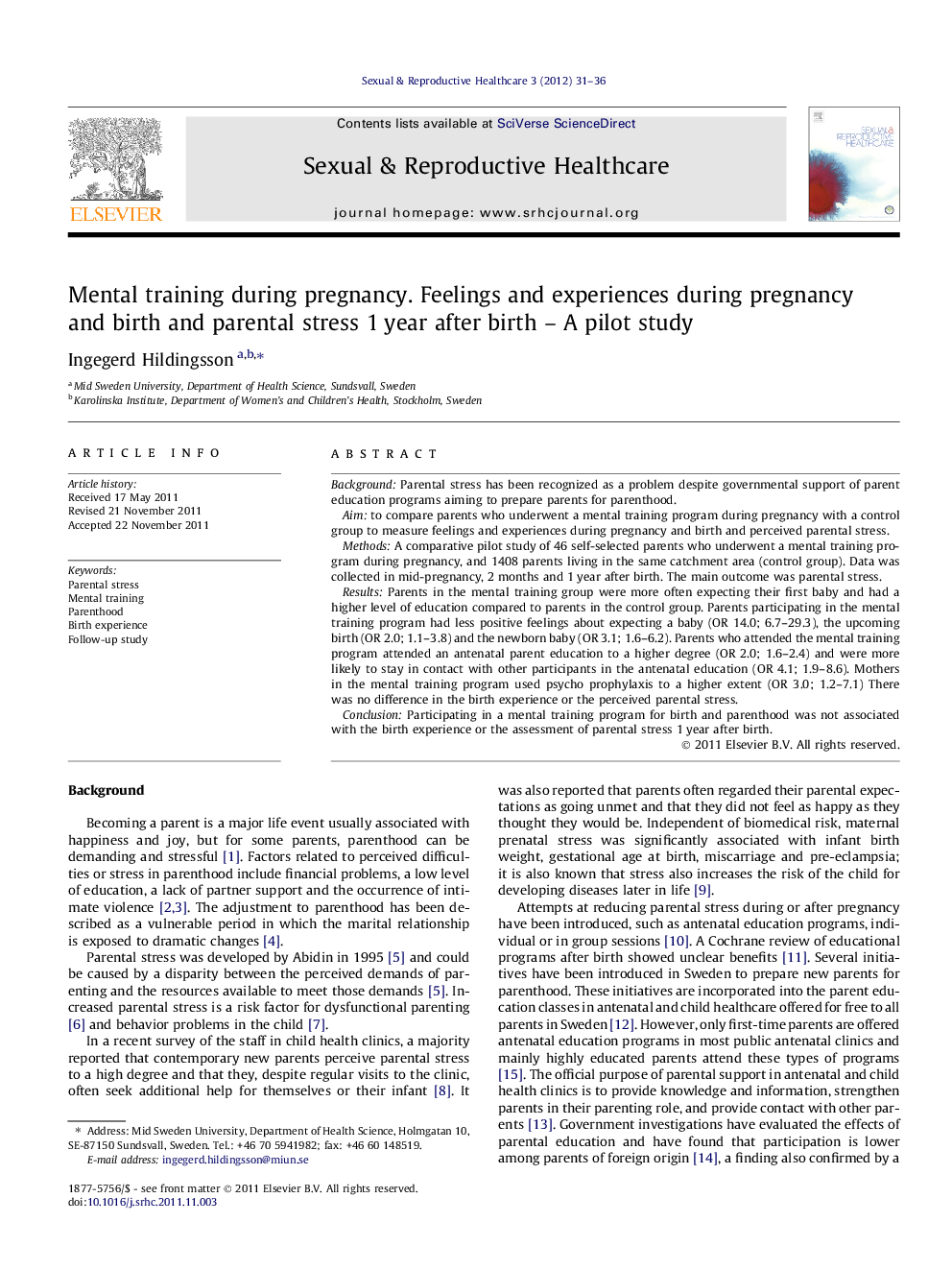| Article ID | Journal | Published Year | Pages | File Type |
|---|---|---|---|---|
| 2636126 | Sexual & Reproductive Healthcare | 2012 | 6 Pages |
Background: Parental stress has been recognized as a problem despite governmental support of parent education programs aiming to prepare parents for parenthood.Aim: to compare parents who underwent a mental training program during pregnancy with a control group to measure feelings and experiences during pregnancy and birth and perceived parental stress.Methods: A comparative pilot study of 46 self-selected parents who underwent a mental training program during pregnancy, and 1408 parents living in the same catchment area (control group). Data was collected in mid-pregnancy, 2 months and 1 year after birth. The main outcome was parental stress.Results: Parents in the mental training group were more often expecting their first baby and had a higher level of education compared to parents in the control group. Parents participating in the mental training program had less positive feelings about expecting a baby (OR 14.0; 6.7–29.3), the upcoming birth (OR 2.0; 1.1–3.8) and the newborn baby (OR 3.1; 1.6–6.2). Parents who attended the mental training program attended an antenatal parent education to a higher degree (OR 2.0; 1.6–2.4) and were more likely to stay in contact with other participants in the antenatal education (OR 4.1; 1.9–8.6). Mothers in the mental training program used psycho prophylaxis to a higher extent (OR 3.0; 1.2–7.1) There was no difference in the birth experience or the perceived parental stress.Conclusion: Participating in a mental training program for birth and parenthood was not associated with the birth experience or the assessment of parental stress 1 year after birth.
